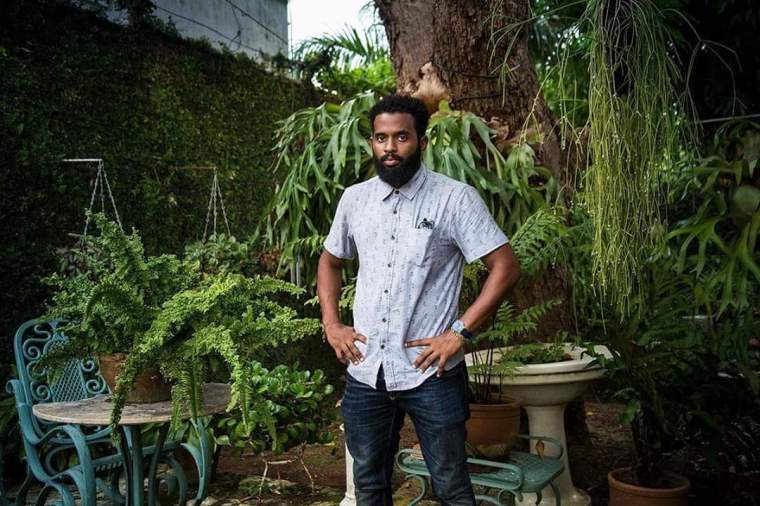Miami, October 6, 2020—Cuban authorities must immediately cease harassing and threatening journalist Abraham Jiménez Enoa, and allow him and all journalists in the country to work freely, the Committee to Protect Journalists said today.
On October 2, state security agents dressed as civilians strip-searched and handcuffed Jiménez and transported him to their headquarters, where he was interrogated for close to five hours and threatened, before letting him go, according to local news reports, and to Jiménez, who spoke with CPJ via phone yesterday. That day, Jiménez had presented himself before a police station in Havana, after being summoned the day before, he told CPJ. Jiménez posted a copy of the summons on his Twitter account.
Jiménez, a freelance journalist who is one of the co-founders of the Cuban online literary journalism magazine El Estornudo, has a monthly column in the Spanish edition of The Washington Post and in regional news magazine Gatopardo, where he mostly writes about life in Cuba. During the interrogation, the agents specifically warned Jiménez that he would face retaliation in the form of legal proceedings and actions against his relatives if he continued to publish in The Washington Post, he told CPJ.
“They told me that if I publish in The Washington Post they will prosecute me for usurpation of functions, because the outlet is not accredited in Cuba, that they will start a war against my family and my relatives, that all this was because behind me is the United States government, ” Jiménez wrote the day of his interrogation on his Twitter account.
“The interrogation of journalist Abraham Jiménez Enoa by Cuban security forces and their threats to his family are disgraceful, and show that President Miguel Díaz-Canel’s regime insists on fundamental disregard of freedoms enshrined in international law,” said CPJ Central and South America Program Coordinator Natalie Southwick, in New York. “We demand that Jiménez Enoa and all journalists be allowed to work freely in Cuba.”
Yesterday, Jiménez published his most recent column in The Washington Post, titled “If this is my last column here, it’s because I’ve been imprisoned in Cuba,” where he described his interrogation.
During the last year, Jiménez has been repeatedly harassed by Cuban authorities, who have barred him and some colleagues from leaving their homes and cut their mobile internet access during newsworthy days, as documented by CPJ. Jiménez told CPJ that he is also “regulated,” which is the term used in Cuba to refer to people — usually human rights defenders, dissenters, and independent journalists — who are arbitrarily barred by authorities from leaving the country.
CPJ emailed the Ministry of the Interior for comment, but did not receive a response.
CPJ’s documentation of the arbitrary detention and interrogation of journalists by Cuban authorities includes the recent case of Yadisley Rodríguez Ramírez.
Cuba ranked 10th on CPJ’s 2019 10 Most Censored list, the only country in the Americas to be included.
Another Washington Post contributor, Saudi exile Jamal Khashoggi, was murdered in 2018 by Saudi operatives in that country’s consulate in Istanbul, Turkey, in apparent retaliation for criticizing the Saudi leadership in the newspaper.
